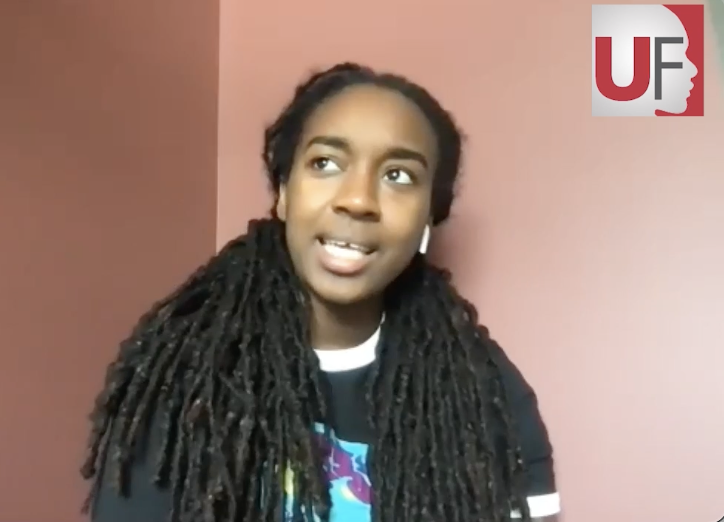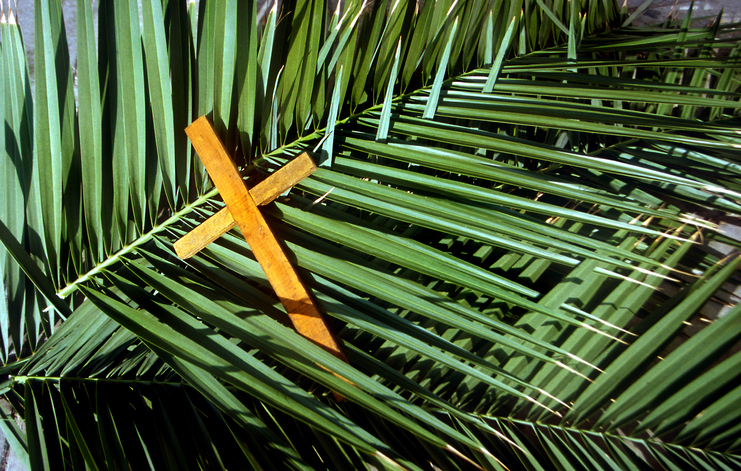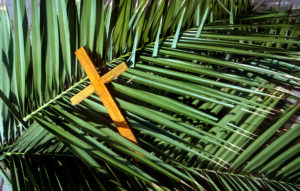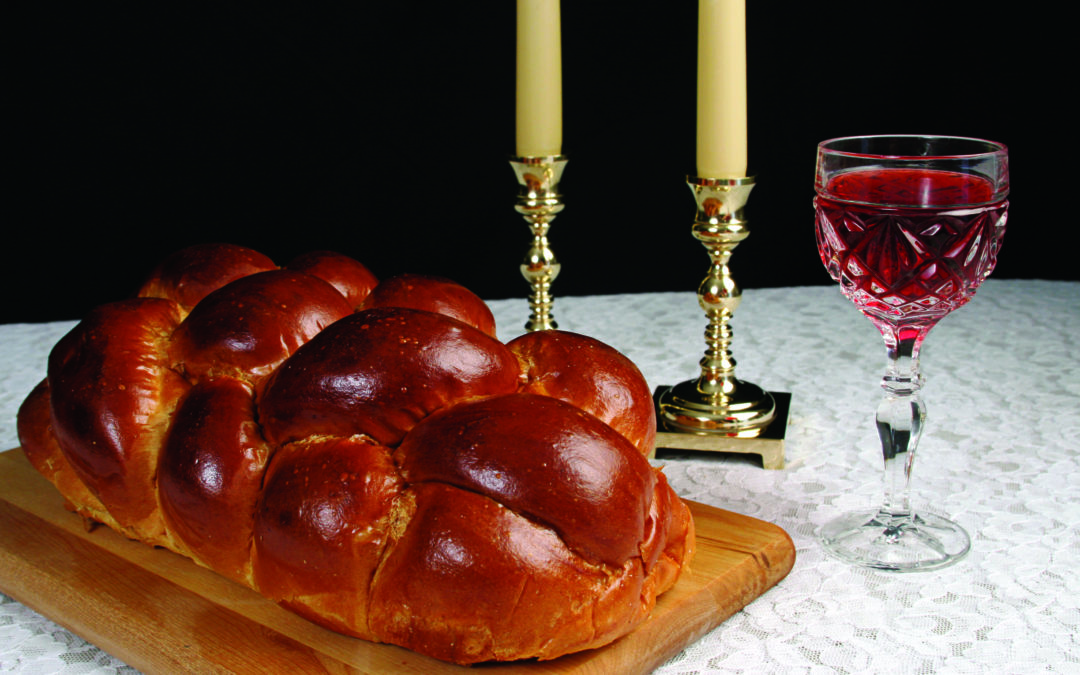
by Roberta Young Jackson | Dec 25, 2022 | Commentary, Headline News, Prayers & Devotionals |
Below is an excerpt. For the full article purchase UrbanFaith Magazine December Quarter 2022
It’s December! It’s that time of year when many people are either anxious or excited about the Christmas holiday season. On the first day of December the countdown to Christmas day begins. Some write Christmas lists while others plan holiday meals. Some begin shopping for the perfect gifts while others decorate their homes inside and out. The brightest reminder of the upcoming holiday is the Grand Illumination of cities and towns around the world. Christmas lights accentuate buildings, houses, trees, ugly sweaters and more. The world is filled with light.
Jesus is the Light of the World
What’s the use of the sun – if the earth can’t feel the glow?
If it couldn’t make flowers grow?
It wouldn’t be a wonder – it wouldn’t be a miracle…
(‘Miracle’, Jonathan McReynolds & Mali Music)
Christians around the world celebrate the birth of Jesus on Christmas, the annual festival observed on December 25. The Gospel according to Luke and Matthew chronicle this illuminating occasion. The birth of Jesus was no ordinary birth; it was a miracle. Jesus was no ordinary man; Jesus was and is the Christ. Christ, which means ‘anointed,’ is a proper name, or title. Jesus Christ is not a name; it is a faith statement. All who declare that Jesus is the Christ, believe and declare that Jesus is God’s anointed Savior. The Gospel according to John declares that Jesus is ‘the Word’ that became human and lived among us.
The song, Miracle, sung by Jonathan McReynolds & Mali Music, reminds me of the miraculous work of God through the son (s-o-n not s-u-n), who came so that we could not only see the light and truth, but also feel the light and be changed by the warmth of it. What’s the use of the Son, if the world can’t feel the liberating power of the God’s love, and be renewed by it? The miraculous birth of Christ would mean nothing if the seed of humanity didn’t turn toward it and mature to its fullest possibility. I often wonder what the world would be like if all of humanity believed and declared that Jesus, the living Word of God, is the Christ.
So the Word became human and made his home among us. He was full of unfailing love and faithfulness.
(John 3:14a, NLT)
The birth of Christ was necessary because we, human beings, needed to restore our relationship with God. Sin is often compared to darkness, and salvation compared to light. When we say that Jesus is the light of the world, we acknowledge that Jesus was born and lived with us. Jesus took on the form of a human being, ‘fixed his tent,’ and became our tent-mate. Well, of course most of us aren’t living in tents these days. However, we do know what it means when family and friends come to our homes and spend time with us. This is what Jesus did, so that we could physically see God’s power and God’s love for us. God loved us even when we weren’t loving toward God. That is unfailing love. When you think of buying and giving Christmas gifts this holiday season, remember Jesus, the greatest gift ever given. When you are paying for the perfect gift that you have chosen for a loved one, remember Jesus is the perfect gift God offered to us.

by Maina Mwaura, Urban Faith Contributing Writer | May 10, 2022 | Commentary, Headline News |
Jackie Hill Perry is one of the most sought after speakers and poets in the country. Her passion for God and using her pen to serve Him led her to write her most recent book: Holier Than Thou: How God’s Holiness Helps Us Trust Him. UrbanFaith sat down to discuss the new book with her. The interview has been edited for clarity. More information on the book is below.
If God is holy, then He can’t sin. If God can’t sin, then He can’t sin against you. If He can’t sin against you, shouldn’t that make Him the most trustworthy being there is?
Bestselling author Jackie Hill Perry, in her much-anticipated follow-up to Gay Girl, Good God, helps us find the reason we don’t trust God—we misunderstand His holiness.
In Holier Than Thou, Jackie walks us through Scripture, shaking the dust off of “holy” as we’ve come to know it and revealing it for what it really is: good news. In these pages, we will see that God is not like us. He is different. He is holy. And that’s exactly what makes Him trustworthy. As it turns out, God being “holier than thou” is actually the best news in the world, and it’s the key to trusting Him.
by Valerie Boyer | Apr 16, 2022 | Headline News, Prayers & Devotionals |
Yesterday, churches around the nation gathered in person and virtually to commemorate the death and murder of Jesus. What a way to die, executed with his boys nowhere around, with the exception of John who he left in the care of his mother. He died in front of his mother. All of these people who loved Jesus, whether at the cross or not, had to live with the fact that they are now living in the world with a dead Jesus. We know now, because of history, that this part is an ongoing story, but even this part has a finality to it. Death is like that. Death is part of the process of living this life, and grief is its own beast of a complicated companion that comes with doing life with someone. These people had to grieve Jesus. God, the Father, had to watch his Son die. God lost His Son. Can you imagine it?
Who were your ones? Who are the people you love and loved so deeply, that your history is now split between before this person and after this person? Did you cry? Do you still cry? How did the gift that is grief show up for you? I believe in our liturgical imaginations, we have created services for almost every other day of Holy Week to commemorate, except for Saturday, because we just don’t know how to sit in grief. Grief can be an all consuming force to deal with, but grief is the price we pay for love, and they were loved. Sunday will get here in its own time, but we should take a page out of the Jesus story in this way too. There’s a reason that grief makes the story.
Theologians will debate about what He’s doing during this time, and the possibility of Him snatching the keys of hell and the people that will rise with him. What we know is that the people left on this side of the river Jordan had to grieve. And that alone is the gift here. The gift is frankly permission to grieve, and to feel feelings. It’s an invitation to learn how to sit in our Satur….sadder-days. It’s an invitation to not run and rush through the grief, but to trust God to get in the grief with you, since God knows what it’s like to live with the loss too. May we all learn how to be still on sadder-days, and hold in tension that this ongoing story, just with the added character of grief.

by Mwikali Munyao | Apr 10, 2022 | Commentary, Headline News, Prayers & Devotionals |
21 As Jesus and the disciples approached Jerusalem, they came to the town of Bethphage on the Mount of Olives. Jesus sent two of them on ahead. 2 “Go into the village over there,” he said. “As soon as you enter it, you will see a donkey tied there, with its colt beside it. Untie them and bring them to me. 3 If anyone asks what you are doing, just say, ‘The Lord needs them,’ and he will immediately let you take them.”
4 This took place to fulfill the prophecy that said,
5 “Tell the people of Jerusalem,
‘Look, your King is coming to you.
He is humble, riding on a donkey—
riding on a donkey’s colt.’”
6 The two disciples did as Jesus commanded. 7 They brought the donkey and the colt to him and threw their garments over the colt, and he sat on it.
8 Most of the crowd spread their garments on the road ahead of him, and others cut branches from the trees and spread them on the road. 9 Jesus was in the center of the procession, and the people all around him were shouting,
“Praise God for the Son of David!
Blessings on the one who comes in the name of the Lord!
Praise God in highest heaven!”
10 The entire city of Jerusalem was in an uproar as he entered. “Who is this?” they asked.
11 And the crowds replied, “It’s Jesus, the prophet from Nazareth in Galilee.”

This story is very powerful, inspiring, and intriguing. As Jesus was preparing Himself for the very painful journey of the cross that was ahead of Him, He performs an act that reveals His thoughtfulness, intentionality, and commitment to destiny.
In Bethphage, there was a village that had a donkey and its foal that mattered to Jesus. A donkey is an animal that is symbolically and literally a beast that bears burdens. Donkeys can carry heavy loads and tread on difficult paths while being submitted to their owners.
- Jesus picked an animal that was used to carry and bear burdens for people as a symbol that He had come to bear the burdens for humanity. As the disciples placed their cloaks on the donkey and its foal for Jesus to sit on, He was reminding us that He was mantled and graced for this heavy and great burden ahead of Him.
- The donkey and foal were tied up and may not have known what was going to happen to them in the future, but Jesus had a plan. He was going to liberate both of them, and no one was going to get in the way of it. He specifically gave the disciples instructions, in case someone questioned them. Their response was to say “The Lord has need of them, and He will send them right away”.
- If Jesus can incorporate an animal in the story of redemption to symbolize how attentive He is to the details of destiny fulfillment, why are you questioning the details that God keeps unveiling in your life about how much He wants to use you?
- Imagine if the donkey and the foal resisted and kicked the disciples causing them to come back empty handed. Of course Jesus would have found an alternative, but the donkey and its foal would have never known the honor of deliverance from a Savior who understands and feels the weight of carrying heavy burdens.
The donkey and its foal walked on roads covered with cloaks and branches from trees as the crowd honored Jesus. They could not honor Jesus without honoring the donkey and the foal that were with Him. Do not resist the moment Jesus calls for you. His desire is to bestow love and grace on you. He is not one to hide you, but desires to walk with you through the journey, and ensure honor is bestowed upon you.
This week, think about the moments Jesus has pulled on you whether through prayer, His word, or a decision that He asked you to make. Why have you not obeyed? What expression of love from Jesus are you blocking when you resist Him? Isn’t it time to try pure freedom and experience what it feels like to have a Savior who understands and loves you? A Savior who has the power to loose you from every hold and bondage? He will not leave you there, but will walk with you until you fulfil the prophetic word He has spoken over your life.
If Jesus cared about a donkey and its foal, give yourself some credit and acknowledge He cares and has great plans for you. It is not a matter of if He is able, it is all about when you yield and obey His call. He is a loving Savior with open arms who desires to bless you and deliver you, to walk through this life with you in liberty and grace. It is time to answer Jesus. He has been calling for you for a while.

by Mwikali Munyao | Apr 4, 2022 | Headline News, Prayers & Devotionals |
17 On the first day of the Festival of Unleavened Bread, the disciples came to Jesus and asked, “Where do you want us to prepare the Passover meal for you?”
18 “As you go into the city,” he told them, “you will see a certain man. Tell him, ‘The Teacher says: My time has come, and I will eat the Passover meal with my disciples at your house.’” 19 So the disciples did as Jesus told them and prepared the Passover meal there.
20 When it was evening, Jesus sat down at the table with the Twelve. 21 While they were eating, he said, “I tell you the truth, one of you will betray me.”
22 Greatly distressed, each one asked in turn, “Am I the one, Lord?”
23 He replied, “One of you who has just eaten from this bowl with me will betray me. 24 For the Son of Man must die, as the Scriptures declared long ago. But how terrible it will be for the one who betrays him. It would be far better for that man if he had never been born!”
25 Judas, the one who would betray him, also asked, “Rabbi, am I the one?”
And Jesus told him, “You have said it.”
26 As they were eating, Jesus took some bread and blessed it. Then he broke it in pieces and gave it to the disciples, saying, “Take this and eat it, for this is my body.”
27 And he took a cup of wine and gave thanks to God for it. He gave it to them and said, “Each of you drink from it, 28 for this is my blood, which confirms the covenant between God and his people. It is poured out as a sacrifice to forgive the sins of many. 29 Mark my words—I will not drink wine again until the day I drink it new with you in my Father’s Kingdom.”
30 Then they sang a hymn and went out to the Mount of Olives.

Out of all the scenarios that Jesus chose to culminate final moments with His disciples, the last supper was one of His top picks. He had communed with them before, and they had shared meals together, but this was different.
Jesus was aware there was a great trial that was ahead of Him, that would be triggered by one of the disciples He had poured into all along. I can imagine the crushing feelings and thoughts that were going through His mind, as He shared with the disciples the truth of what He had always known, it would be one of His own who would betray Him.
There is a posture that Jesus models to us: how to deal with betrayal in the works. A lot of times, solutions are provided after betrayal happens, wisdom is shared after the fact, but what do you do when you come into the knowledge of a betrayal in the works?
- Maintain your cool
Jesus was not erratic or irrational. The bible states in verse 21: “And while they were eating, He said, “Truly I tell you, one of you will betray me”. His calmness to the situation reveals the posture that He had regarding what was going on. He was not afraid, everything was under control, He was keenly aware of that, and nothing was going to pull Him out of character.
- Maintain the main perspective
Jesus understood this was necessary for the fulfillment of destiny and prophecy. He was not weak. He understood the betrayal was part of the process. This reveals His maturity and focus on what was important, the cross. Fulfilling the will of His father was priority to Him, and nothing was going to stop that. Everything was working together to bring the prophecy to pass
- Maintain your integrity
Jesus understood, the disciples would come to the realization of the full context of what He meant during this Supper after His crucifixion. He was careful to maintain the integrity of Judas and not expose him to the disciples, because that could have meant harsh retaliation from them. He wanted the disciples to remember how to handle their enemies, and how to deal with delicate situations like this in a manner that was Christ-like.
There will be moments in your life when you will discern or become aware of betrayals that are in the works against you. It may be painful. For a moment, you may desire to come out of character to prove a point. My prayer for you is that you will remember that you have a Savior who understands the pain of betrayal because He overcame it. In that moment, may you find refuge in His love and guidance, to help you navigate through the emotional turmoil you may have, and ensure you make the right choices that will avoid regret in the years to come.






